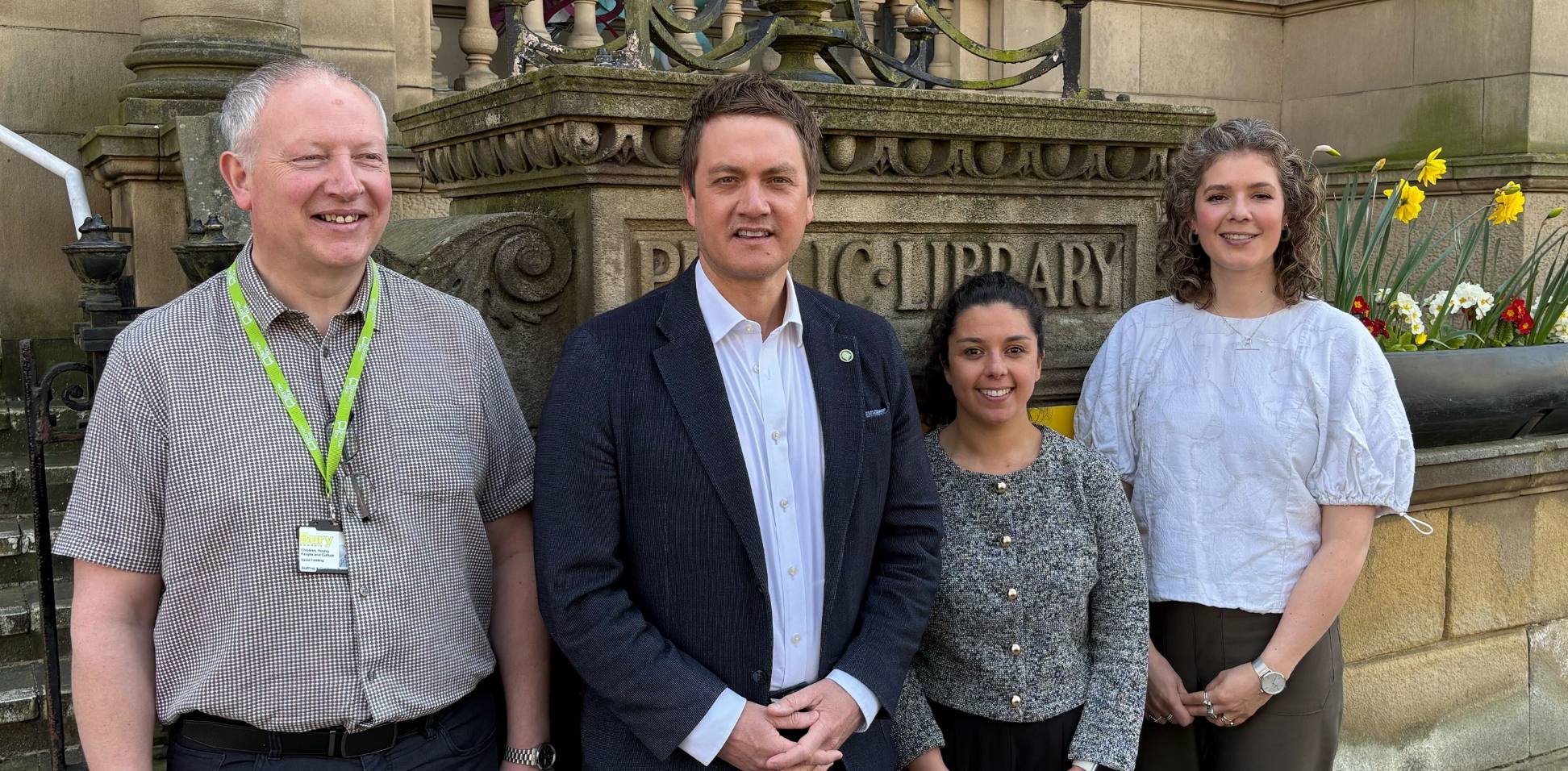Strapped for cash? Why the Government should innovate for digital inclusion
As we launch our new policy asks, calling on the Government to think broadly and deeply, Group CEO, Helen Milner OBE delves into why innovating digital inclusion funding is an opportunity not to be missed.
In June, we’re expecting to see the white smoke of what we ‘know’ will be a tough Spending Review covering the remaining Parliament term. The endless coverage about global political instability and politicians reminding us that they are strapped for cash is a not-so-subtle way of desensitising the country to expect no or little money for “less” important policy areas, like digital inclusion.
But I haven’t waited this long for a Government that fundamentally understands the opportunity of digital inclusion to miss this moment. Why don’t we see this ‘lack of money’ as a challenge to which we need to find a solution to?
A reminder of the economic opportunity that digital inclusion brings, such as providing basic digital skills support:
- £13.7 billion is the benefit to the economy if five million more people have the digital basics;
- £23.1 billion Gross Value Add increase per year, fuelling an £10.3 billion annual uplift in earnings;
- And there remains great potential for those currently economically inactive - many of which are digitally excluded - with state support for two million of them to get back into employment; increasing productivity and economic prosperity.
There’s not a lot of ‘spare’ cash around in Government vaults to invest in realising these benefits - but there is a lot of money.
Digital exclusion is - but not only - the lack of basic digital skills and confidence, and a lack of affordable access to use the internet well and safely. Digital exclusion affects people’s ability to find work, to keep work, to support their children to succeed, to get the best healthcare from the NHS, to get support with managing debt or access financial services, to shop online with convenience and ease. Digital inclusion is about removing the barriers and about helping people to realise the opportunities available to them once they are part of the modern, online world.
At Good Things, we recognise that all Government departments can reap the benefits by baking digital inclusion into all their policies that affect those currently left behind.
But like everything else, the solution to this challenge won’t be easy and it won’t be free.
Of course a lot of existing Government money needs to be invested in the big stuff - pensions, defence, schools, the NHS, public transport, et al. I hate it when I hear politicians say ‘there’s no money’ as clearly there is a lot of money. There are trillions of pounds… and digital inclusion better enables citizens to benefit from such expenditure.
At Good Things, we’re calling on the Government (and their cross-sector partners) to think innovatively about ways in which to systematise increased investment in digital inclusion. We’re not saying we have all the solutions; we are saying that the Government needs to be thinking creatively about how to ensure its Growth Mission is achieved - by ensuring the modern, digital world is a world for everyone.
Some initial ‘innovative’ ideas for discussion includes:
- If the Digital Services Tax survives the trade negotiations with President Trump’s team, investing 1% of that tax income annually into digital inclusion would seem appropriate. The Digital Service Tax was introduced in 2020, it charges 2% of UK revenues from businesses such as search engines, social media services, and online marketplaces who have a global revenue exceeding £500 million and at least £250 million from UK digital activities. The Digital Services Tax in the UK is expected to bring in £800m in 2025. Could this be a source of money for making a more inclusive digital world?
- The Social Value Act does not bring large scale and strategic investment into anything… yet! At best, the Social Value Act brings localised and single impact actions alongside public sector investment delivered by private companies. At worst, it’s a tick box on a tender response and meaningless scores on a table. This needs a fundamental review. Digital inclusion needs both national and local investment following the Social Value commitments made by businesses (via the Act and relevant tenders). It needs to be strategic and ongoing, not one-off. Businesses and public sector procurement people think it needs reviewing, and digital inclusion could benefit significantly from this.
- And our final - and maybe most ambitious - idea is a Digital Inclusion Embedding Fund. Digital inclusion brings benefits to many UK Government departments and will deliver successful policy across many areas - therefore it’s not ‘just’ for the Department for Science, Innovation, and Technology (DSIT) to fund. If a number of departments all put an annual amount into an Embedding Fund (say, £10 million each per year) and then those departments could bid into the fund to bake digital inclusion into their policy implementation plans. This would drive ownership and accountability at each department and even better, across departments working together. (This idea could give a lot of teeth to the new Government Ministerial Group on Digital Inclusion.)
Since I’ve called this ‘innovation’ I’ve not mentioned the obvious areas that need review and that would deliver great impact: the Essential Digital Skills Entitlement, which needs reforming and would in turn unlock monies from the Adult Education Budget (AEB). The AEB is devolved but there is little evidence that this has led to any large-scale successes for people gaining the digital basics (an exception to this rule is West Midlands Combined Authority, who had a go at it but it’s very small scale, see their Digital Skills Blueprint, 2023).
What’s more, new policies such as Get Britain Working (also devolved) should include clear principles for embedding digital inclusion into the regional and local actions - ensuring the pathways to work are successful for long-term change, not short term job outcomes. (A proportion of the over 2 million people currently economically inactive are digitally excluded: 24% of people not working lack basic digital skills, and 25% of disabled people or people with a long term health condition lack basic digital skills (see our work: Good Things Foundation, 2024). Factoring in barriers such as digital access, then those living on lower incomes are more likely to be excluded due to lack of affordability - likely increasing these numbers.)
This is why we’re calling on the Government to think broadly and deeply; with limitation comes creativity. I’d love to get together a group of innovative and knowledgeable thinkers - including from the Treasury - to see if there’s a way that digital inclusion isn’t just a commitment for today but it’s being invested in for this Spending Review, and the next and the next until we have systemic change and we’ve fixed the digital divide for good.


.jpg)